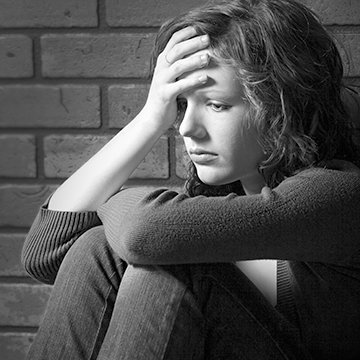Few things are more devastating than discovering that your teen is suffering from alcohol or drug addiction.
The reaction of some parents is to punish or discipline their child, which can often make the situation worse. Other parents might linger in denial, which also does not help the addicted youngster or put him or her on a path to recovery.
The important thing to remember is — unfortunately — teen addiction is quite widespread. While this is not necessarily comforting, it is good to know your adolescent is not alone and getting help doesn’t carry the stigma or present the kind of challenges it once did. Therefore, it is important to be aware of the various options available, so you can pick the best solution for your family.
Warning signs of teen addiction
In order to get your child the treatment they need, it’s important to be able to first identify signs of an addiction. While the signs of drinking are easier to discern — the smell of alcohol being the most common giveaway — the manifestation of drug addiction can be trickier to detect. Some clues include:
- Physical indicators such as bloodshot eyes, constant nosebleeds (from nasally ingested substances), odd changes in appetite or sleep patterns or a sudden lack of grooming and hygiene
- Behavioral clues, including a sudden drop in school or work attendance, an endless need for extra money and secretive or suspicious behavior
- Psychological manifestations such as abrupt alterations in personality and attitudes, odd mood changes, sudden irritability and/or anger, frequent agitation, lethargy or curious fits of anxiety or paranoia
Remember, not every sign of unusual behavior needs to send off alarm bells in your mind. However, when there are frequent and multiple instances of behaviors that are out-of-character or even concerning, it would be beneficial to have a conversation with your teen.
Five treatment options to consider
If you discover or suspect your teen has a drug or alcohol problem, there are a number of treatment options available.
Educational groups
Sometimes teens can be treated successfully simply by attending group therapy or education. When adolescents learn the many negative outcomes of addiction from other teenagers or a memorable speaker, it can foster a desire to get clean.
Health issues, incarceration, and job loss are all good reasons to stop using drugs or alcohol, and sometimes a reminder of these dangers from their peers or a new mentor can pave the way toward recovery. Personal stories are powerful tools, and the education and insight of these anecdotes can reach your teen in ways you simply cannot.
Individual counseling
Teens often use drugs or alcohol to self-medicate an unresolved psychological issue, school or job stress, or a preexisting, undiagnosed medical condition. Individual counseling can be a good step toward uncovering these problems and offering more healthy treatment options.
Family counseling and education
If the teen’s family is sympathetic and willing to provide a clean, positive and encouraging environment, an excellent alternative to conventional treatment is family counseling and education. Involving family and friends not only helps aid the youth through the recovery process, it has demonstrated a high success rate for relapse prevention and long-term recovery.
Plus, the effects of addiction reach more than just the individual using substances; the family struggles when individuals within the home are battling addiction. Family therapy sessions can help everyone learn how to properly cope and manage emotions associated with addiction.
Twelve-step programs
Twelve-step programs provide participants with the psychological tools necessary to achieve sobriety and assist others in recovery. Twelve-steppers meet in local groups, which range in size, and there are never any mandatory fees or dues. The only requirement is a desire to stop drinking or doing drugs.
Alcoholics Anonymous (AA) and Narcotics Anonymous (NA) have proven to be very effective treatment options, but — especially with teenagers — should be attended under the supervision of a parent, guardian, mentor or treatment provider. Interacting with others who are also struggling with addiction may present unforeseen complications for some adolescents. For this reason, a responsible adult should always be present with your child.
Recovery planning for relapse prevention
To ensure maintained recovery, aftercare planning is the key. Aftercare planning helps parents and friends understand how to proceed in the event of a relapse. Not having a plan in place is one of the biggest reasons why teens fail to stay clean, so don’t omit this essential step in the process.
Ready to get help for your teen?
Dealing with an addicted teen can leave parents or guardians feeling helpless and alone. Knowing there is help available can make a tremendous difference not only in the life of your child but also in your own mental health. You don’t have to do this alone.
If you or a loved one know a teenager who needs help with suspected substance abuse, High Focus Centers is here to help. Contact our offices to learn more.
Recent Posts
- How Mood Stabilizers Work to Restore Emotional Balance
- Trauma-Informed Approaches in Therapy: Why Understanding Trauma is Essential for Healing
- Using Art as a Voice: Exploring the Therapeutic Benefits of Creativity
- What is Xylazine?
- How Overcoming Roadblocks is Crucial to Recovery – And How Your Treatment Center Can Help



